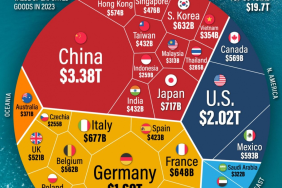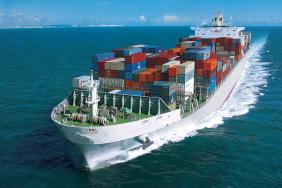The tariffs include a 25% tariff on all goods from Mexico and Canada, and a 10% tariff on goods imported from China. This decision is expected to have a major impact on global trade and industries that rely on supply chains from North America and Asia.
1. Details of the New Tariffs
The new tariffs announced include:
25% tariffs on all goods imported from Mexico and Canada.
10% tariffs on all goods imported from China.
Trump is using these tariffs not to protect domestic manufacturing, but as political leverage. For Mexico and Canada, the tariffs will remain in place until the two countries control drug trafficking and illegal immigration into the United States. For China, the tariffs are aimed at forcing the Chinese government to control the production and export of fentanyl precursors, which are fueling the opioid crisis in the United States.
2. Impact on Global Trade and Supply Chains
The imposition of new tariffs on three major trading partners will disrupt global supply chains, especially for businesses that rely on imports from Mexico, Canada, and China. These tariffs are likely to increase the price of goods, putting pressure on American consumers and businesses.
Industries that rely on raw materials and components from abroad, such as manufacturing, electronics, and automobiles, will be most affected. Many companies may have to adjust their supply chains, seek alternative sources of supply, or pass on the additional costs to consumers, leading to higher prices.
Experts also predict that businesses will have to adopt new strategies to minimize the impact of the tariffs, including shifting production out of affected countries, renegotiating contracts with suppliers, and enhancing customs compliance efforts.
Sources: U.S. Department of Commerce Census Bureau, Bureau of Economic Analysis
3. Insights from Sala Logistics
Sala Logistics recognizes that these new tariffs are forcing businesses to rethink their logistics strategies. Companies that rely heavily on imports from China, Mexico or Canada need to evaluate alternative supply options and develop contingency plans to minimize increased costs and the risk of delays.
We recommend that businesses:
Diversify their supply sources to reduce their dependence on specific countries.
Work with logistics partners to ensure efficient customs clearance and compliance with new regulations.
Explore manufacturing opportunities in non-tariff countries to remain competitive.
Sala Logistics offers comprehensive services to support businesses in addressing these challenges. Our expertise in customs brokerage, supply chain optimization and international transportation can help businesses mitigate risks and adapt to the changing trade landscape.
Trump’s announcement of new tariffs on China, Mexico, and Canada signals significant changes in U.S. trade policy. These tariffs will not only increase costs for businesses and consumers, but will also disrupt established supply chains. Businesses must act quickly to adapt, find alternatives, and strengthen their logistics strategies.






